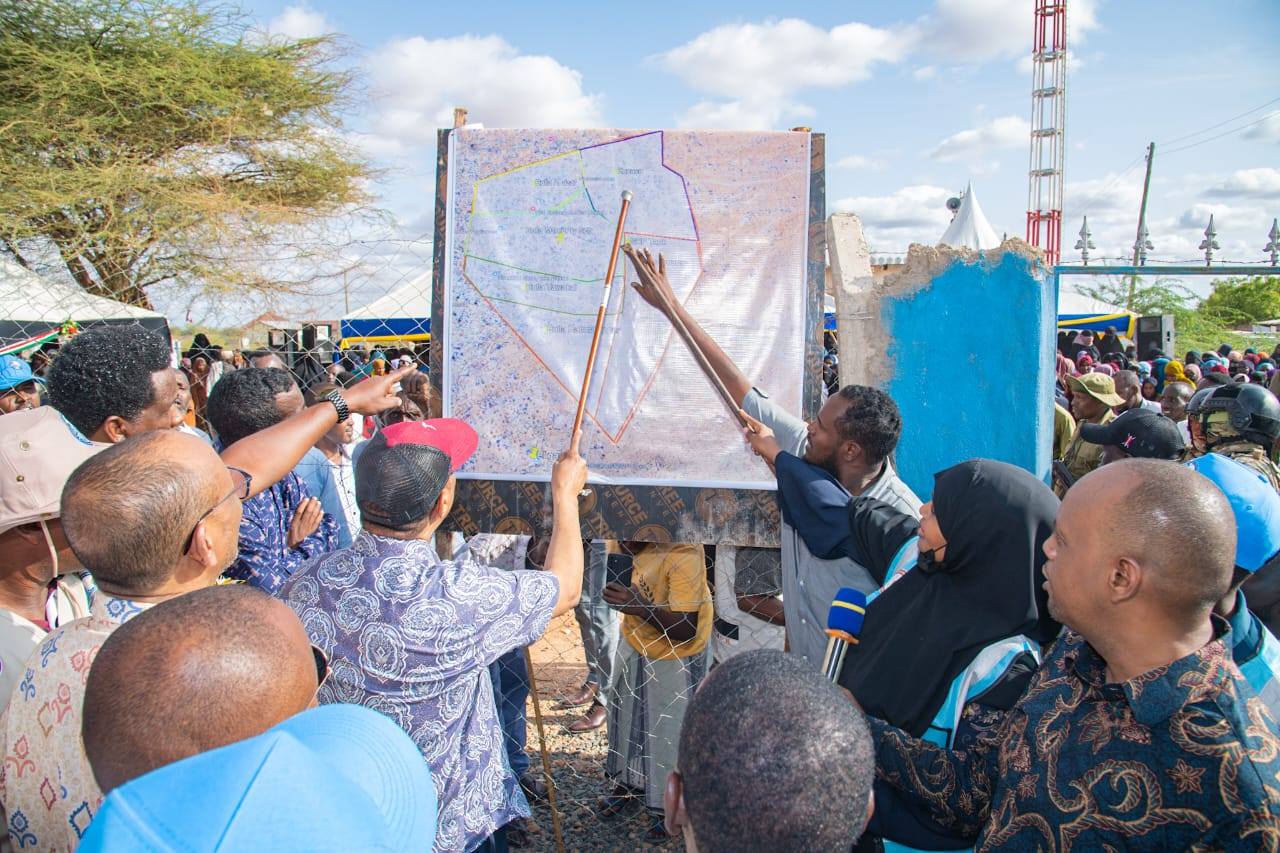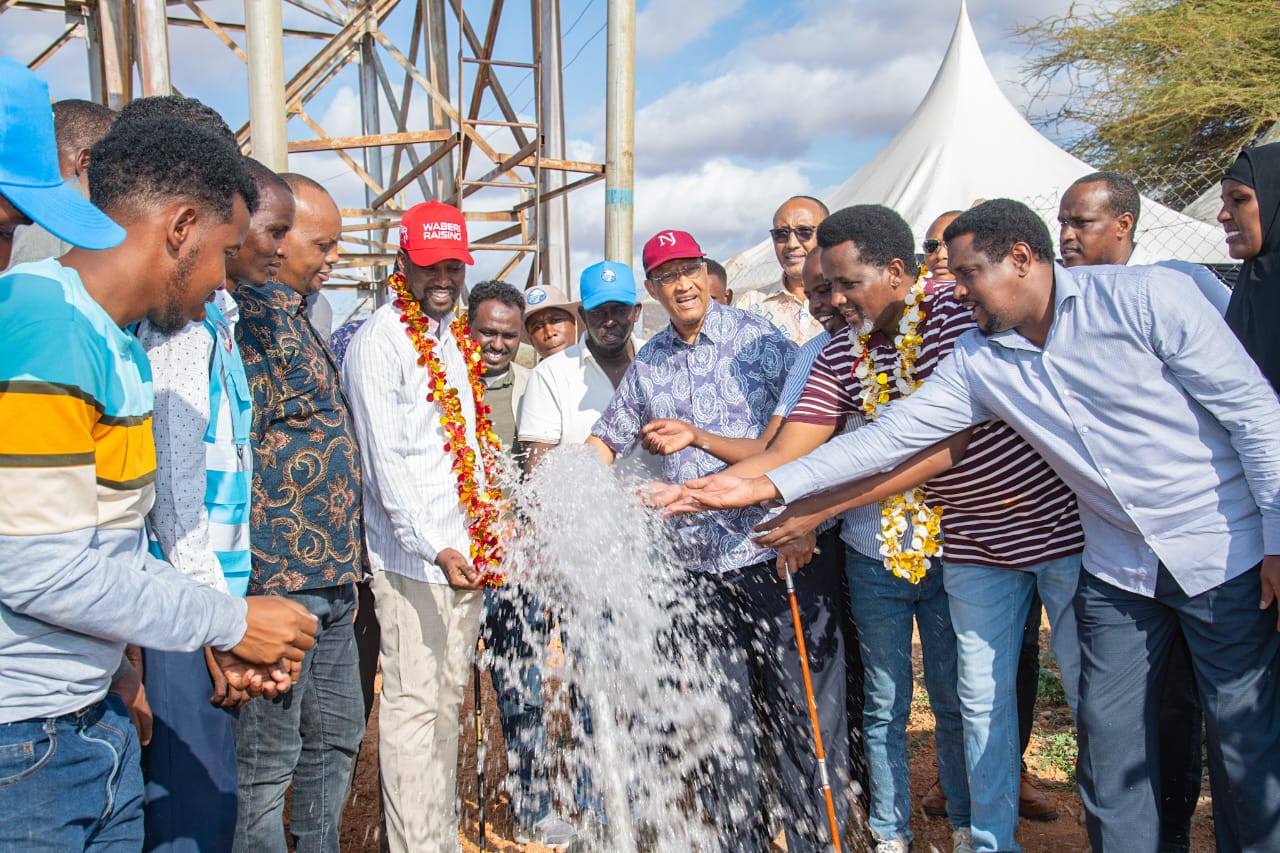After more than three decades without reliable access to piped water, residents of Waberi Ward can finally celebrate a new era of hope and dignity following the commissioning of the Waberi Maramtu Water Extension Project.
The project, implemented by the County Government of Garissa through the Garissa Water and Sewerage Company (GAWASCO), restores a consistent water supply to an area that has long endured hardship and water scarcity.
It will now serve hundreds of households across Bula Kunaso, Bula Tawakal-Upper, Upper Bula Mzuri, Al-Azhal Area, Bula Rahma-Upper, Dar-Salam Area, Hodhan 3, and Lower Bashal, benefiting schools, mosques, and businesses.

Speaking during the launch, Garissa Governor Nathif Jama hailed the initiative as a major milestone in his administration’s commitment to improving lives through essential infrastructure and equitable service delivery.
“For three decades, families here have endured hardship accessing safe water. Today, we bring them hope, health, and dignity. This project is a testament to what devolution can deliver when leadership and community work together,” said Governor Nathif.
Local leaders and residents alike welcomed the development with excitement and gratitude.
Waberi MCA Hon. Abubakar Haji praised the county’s efforts, noting that the new system would transform livelihoods and restore confidence in local governance.
“Our people have waited a lifetime for this. We are grateful to Governor Nathif and the GAWASCO team for keeping their word and changing lives in Waberi Ward,” said Hon. Abubakar.
In appreciation, residents presented certificates of recognition to Governor Nathif and GAWASCO Managing Director Mohamed Dolal, commending their dedication and commitment to ensuring clean water access for all.
Governor Nathif reaffirmed that the Waberi Maramtu Water Project forms part of his broader Water Expansion Agenda, aimed at ensuring every household across Garissa County enjoys access to safe and reliable water.
“Better water access means better health, stronger communities, and improved livelihoods,” the governor added.
“This is what service delivery under devolution should look like.”
The project not only restores a basic need but also revives the spirit of community resilience and trust in local leadership.

